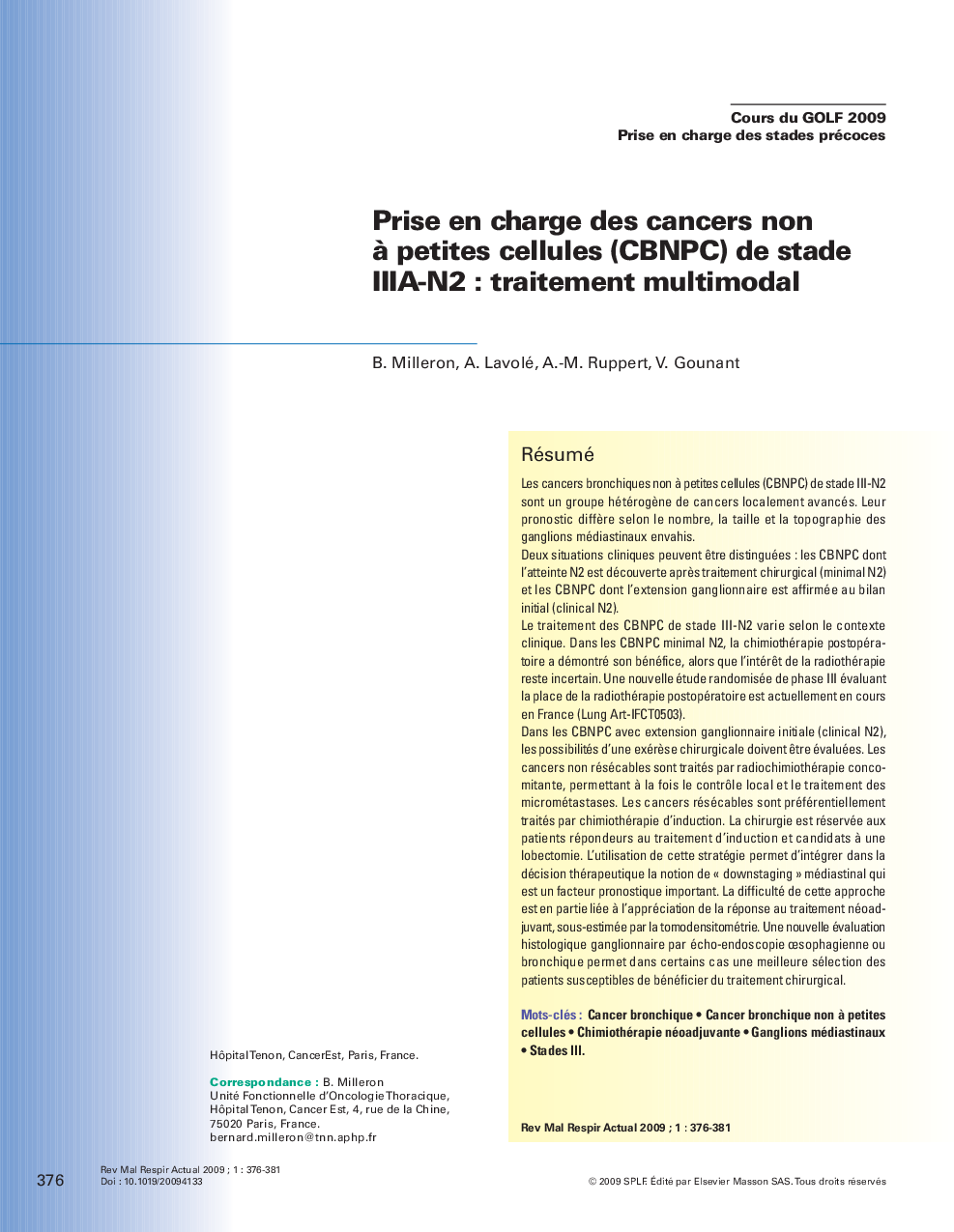| Article ID | Journal | Published Year | Pages | File Type |
|---|---|---|---|---|
| 4216273 | Revue des Maladies Respiratoires Actualités | 2009 | 6 Pages |
Abstract
The treatment of stage IIIA-N2 NSCLC depends on the context. In minimal N2 NSCLC, postoperative chemotherapy has demonstrated a significant survival benefit, while the role of postoperative radiotherapy has not yet been defined. A randomized phase III trial of postoperative radiotherapy is ongoing in France (Lung Art-IFCT0503). The management of clinical N2 disease is based on multimodality treatments. Firstly, the possibility of surgical resection has to be considered. Extensive, inoperable, NSCLC is treated with combined chemoradiotherapy, providing improved local tumour control and treatment of distant micrometastases. Pathologically proven and operable N2 NSCLC will be treated by induction chemotherapy. Surgical resection may be considered in patients with tumour response who can be treated by lobectomy. In fact, mediastinal downstaging after induction therapy is an important prognostic factor. The difficulty with this strategy is related to the evaluation of tumour response after induction chemotherapy which is underestimated by thoracic CT scanning. Pathological lymph node restaging by minimally invasive techniques like endobronchial or transoesophageal ultrasound may be necessary to improve the selection of patients who will benefit from resection.
Keywords
Related Topics
Health Sciences
Medicine and Dentistry
Pulmonary and Respiratory Medicine
Authors
B. Milleron, A. Lavolé, A.-M. Ruppert, V. Gounant,
